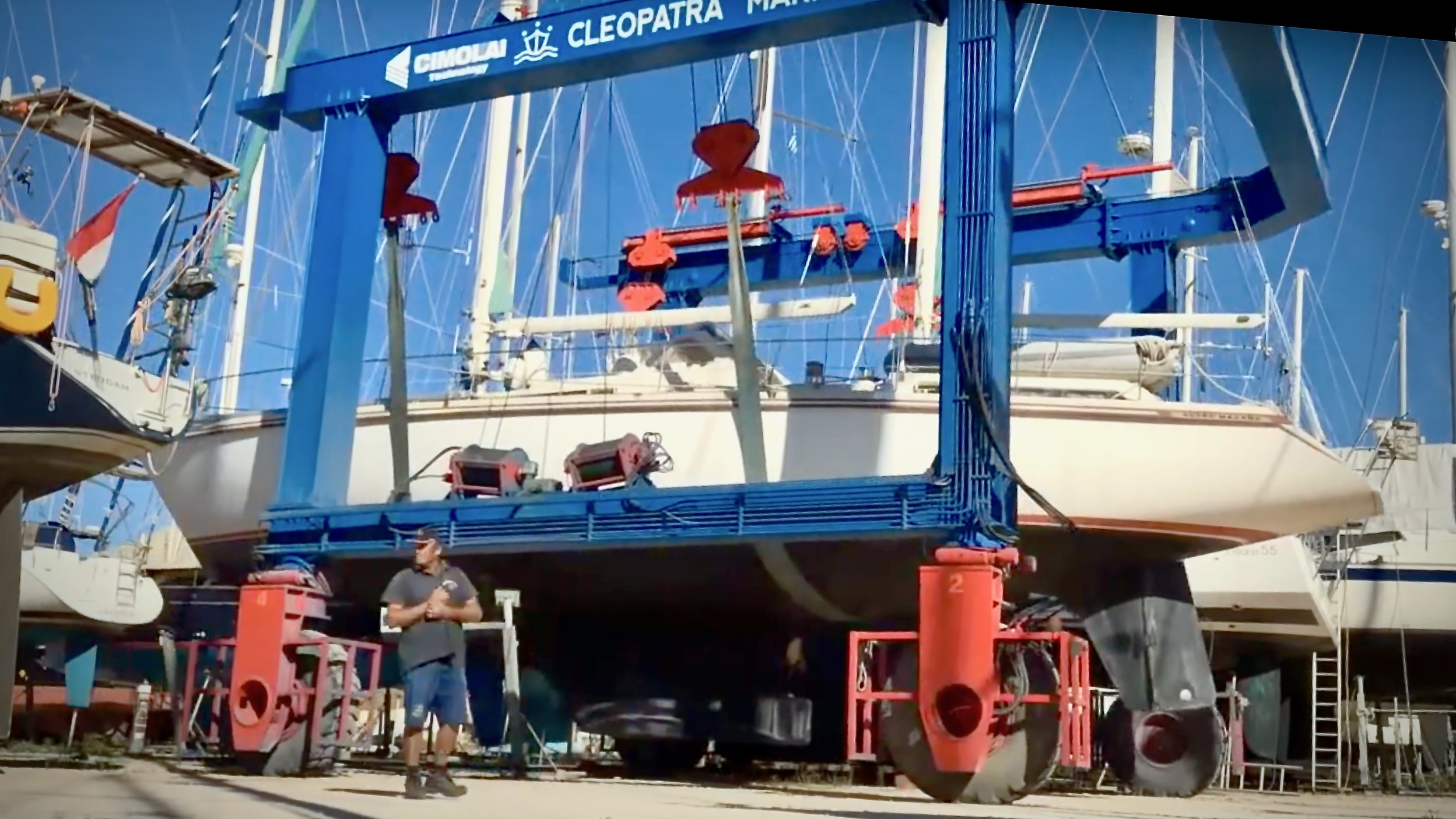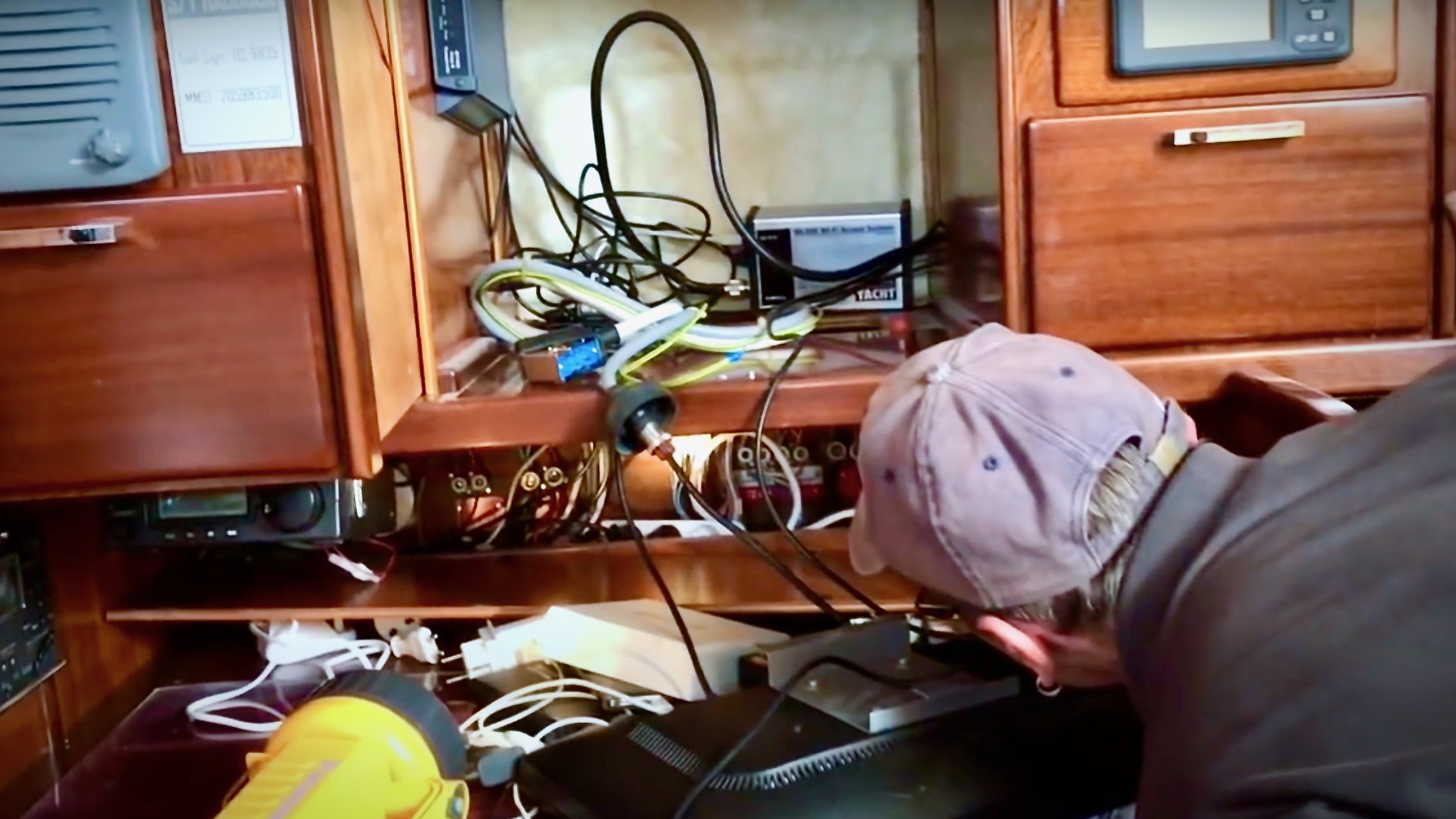Moving on a Boat and off the Dock
01-03-08
“Find freedom in a quiet bar, a good pint of beer, and the simple joy of a drink without intrusion or noise—an oasis where one can savour life’s simple pleasures.”
Moving onto a boat is nothing like moving into a new house or apartment.
Moving on a Boat and off the Dock
The Chaos of Moving Aboard
Let’s not sugarcoat it, moving onto a boat is nothing like moving into a new house or apartment. If moving house ranks up there with divorce and job loss on the "high stress" index, then moving onto a boat can be like that… on steroids. We began our sailing adventure in Greece, which, in hindsight, was a great decision. But there was still the small matter of pulling the kids out of school, quitting jobs, shutting down a business, and selling the car, our cherished Bongo, a camper van we bought in an online auction from Japan. Parting with it felt like losing a family member. I’m pretty sure when the kids saw us selling the Bongo, they thought they might be next!
Facing the Reality of Prepping the Boat
I led the charge, heading out a month ahead of the family to tackle a long list of issues: engine troubles, the life raft, the generator, the prop, the bow thruster… the list seemed endless. With the mess, confusion, and chaos of it all, having somewhere to retreat at the end of the day is a must. This is especially true if your boat’s stuck in a yard where the grime will literally and metaphorically get under your skin. Being in Greece, my retreat was the local taverna. After a good shower, I’d end the day with a moussaka or souvlaki with a cold beer, and washed down with baclava and the occasional Metaxa.
Having somewhere to retreat at the end of the day is a must - Even if it’s just a small Taverna like this. Ep. 008: Living the Dream - Larnaka , Greece.
Find Temporary Refuge Before Setting Sail
If you're trying to tackle the whole move in one go, especially if the family arrives all at once, consider booking yourself into a motel or Airbnb for a bit. We found a nice house-sit or two when we were in Brisbane, it made maintenance weeks so much easier to handle.
Decluttering and Downsizing: What to Keep, Sell, or Chuck
If you’ve bought a used boat, chances are you’ve also inherited a treasure trove of confusion from the previous owner, boxes of random spares, tools, and equipment that look like junk from a Victorian dentist’s surgery or a NASA space mission. Sorting through it all will take longer than you think, and five years later, you’ll still be moving things around. So photograph the weird stuff and post it on a boating forum for the armchair experts to puzzle over.
A treasure trove of confusion awaits. The ultimate question is: keep it, sell it, or chuck it? Ep. 008: Living the Dream - Larnaka , Greece.
These days, AI image searches are a great way to identify obscure items too. You might also come across discontinued spares for obsolete equipment no longer on the boat. Don’t toss them just yet; someone, somewhere might pay a small fortune for them. The ultimate question is: keep it, sell it, or chuck it?
Taking Stock of Your Supplies
After the major decluttering you probably did before leaving your house, this should feel like second nature. As you work through the bilges and cupboards, make a list or spreadsheet of everything you find. After a few days, it will all become a blur!
The mess will all become a blur - make a list or spreadsheet! Ep. 008: Living the Dream - Larnaka , Greece.
Bring half of what you think you need (especially clothes), and twice the amount of money. I know you’ve heard it before, but seriously, your boat will eat up every inch of space and still leave you needing more. You won’t use half of what you bring anyway, so leave it behind. And if, by some chance, you do need something, Amazon delivers to pretty much everywhere these days.
Allow Space for Long-Term Needs
Remember not to fill every crevice in the boat, because when you cross oceans, you’ll need space for extra food and spares, especially if you take on extra crew.
Don't fill every crevice, you’ll need space for extra food and spares when crossing oceans. Ep. 008: Living the Dream - Larnaka , Greece.
The Reality of Boat Life: Power, Water, and Limited Space
When the day finally came to launch our boat, a few friends joined me for the shakedown sail. It went about as well as can be expected. After they left, I fixed a few more things and prepared for the family's grand arrival. When they finally showed up, the excitement was off the charts. It was the first time we’d been together in months and the first time they’d seen the boat, they were practically bouncing with joy. We were finally together, on our own boat; a day we’d spent many, many years working towards. But Irenka couldn’t understand how, after working so hard on the boat, I’d managed to get so fat! My taverna nights were sadly over.
The family were practically bouncing with joy when they arrived. Ep. 008: Living the Dream - Larnaka , Greece.
The Appeal and Pitfalls of Marina Life
I’ll be honest, I’m not keen on marinas. Too much comfort, too much routine, too many marina junkies who’ve forgotten what an anchor is for. But our first winter was spent in one, then the winter after that and the one after that too! Boat systems take time to get used to, especially adjusting to reduced power and water consumption. If you have kids, homeschooling is another major adjustment, not just in terms of the school work but the child vs teacher/parent dynamic. I have to admit, marinas are a good way to ease kids into boat life as they can get off the boat and burn off some energy on the dock. It makes the routine of life a lot easier. You’ll also be surrounded by interesting characters and seasoned cruisers, a ready-made community always willing to help out or offer advice as well as other families for the kids to mix with.
Homeschooling is a major adjustment, especially the child vs teacher/parent dynamic. Ep. 008: Living the Dream - Larnaka , Greece.
Beware of Dock Rot: The Marina Trap
But be aware of creeping Dock Rot! The longer you stay, the harder it is to leave. Stay too long, and you’ll slowly realise you’re surrounded by cruisers too fearful to leave, with little intention of doing any actual cruising. To avoid this, we always put a date on the calendar, usually a few days before we’re ready to set sail, to move to a nearby anchorage or mooring buoy. It’s like limbering up before a marathon, gets you back into the rhythm of boat life, dealing with power, water, and dinghy runs without the comforts of ‘home.’ It removes the fear of forgetting something and reminds you what boat life is all about.
Beware of Dock Rot. The longer you stay, the harder it is to leave. Ep. 010: Liveaboards! - Perveza, Greece
No Boat is Ever 100% Ready
Absolutely no one leaves the dock with a boat that’s 100% ready. So cut yourself some slack. The boat will never be perfect. Fix one thing, and two others will break. The temptation to dive into project after project is strong, but pace yourself. Every job takes twice as long as you think, and stress builds fast. Striving for perfection and starting jobs you can’t finish on time will only make things worse.
Expect the Unexpected: Embracing the Chaos of Boat Life
When you finally do set off, keep your first trips short, maybe half-day hops. Everything will take longer than expected, and something will go wrong. It always does. In fact, if something doesn’t go wrong on our boat, I actually get nervous that I’ve missed something!
Take your time, explore, and factor in ‘buffer days’ where you plan to do nothing. Ep. 010: Liveaboards! - Perveza, Greece
Every cruiser learns early on that sailing to deadlines is a recipe for frustration and disaster. Weather forecasts can be spectacularly wrong, and you often need time to fix whatever breaks before the boat can move again. So take your time, explore, and factor in ‘buffer days’ where you plan to do nothing.
Coping with Overwhelm
Once in a while, you’ll feel overwhelmed and wonder why on earth you ever thought living on a boat was a good idea. We still get those days after seven years on board! When that happens, slow down. Stay in one place longer, and if you can, plan for a night off the boat or in a marina. We’re all out here winging it, no matter how competent we seem. Asking for help doesn’t make you any less of a cruiser. Whether it’s advice from a neighbour at the dock or a tip from an online group, don’t hesitate to reach out. Whatever your problem, countless others have faced it and come out the other side. Maybe not smiling, but certainly wiser.
When you're laughing at the confusion and chaos, you’ll know you’ve truly become a proper cruiser. Ep. 010: Liveaboards! - Perveza, Greece
Laughing Through the Chaos: Becoming a True Cruiser
There will always be frustrations. But keep it fun, take it slow, laugh at the mishaps, and soon this chaotic, floating life will feel like second nature. Before you know it, you’ll be laughing at the confusion and chaos. And that’s when you’ll know you’ve truly become a proper cruiser.
That’s another wrap. Next week we’ll be looking at setting a sail-away budget.
If you want more straight-talking tales from life afloat, and information on moving on a boat and off the dock, then you’ll love our upcoming book. We're inviting early readers to join the pre-launch crew and get behind-the-scenes access as we wrestle it into shape. It’s honest, unfiltered, and occasionally useful. Sign up here to get involved, give feedback, and be part of something that’ll either be a bestseller or a brilliant cautionary tale.











